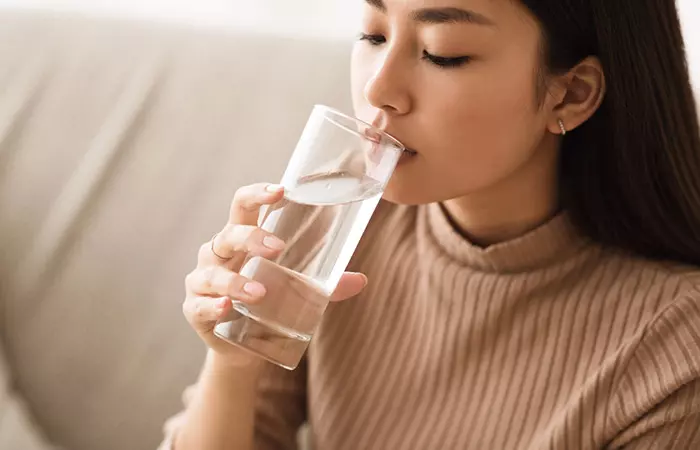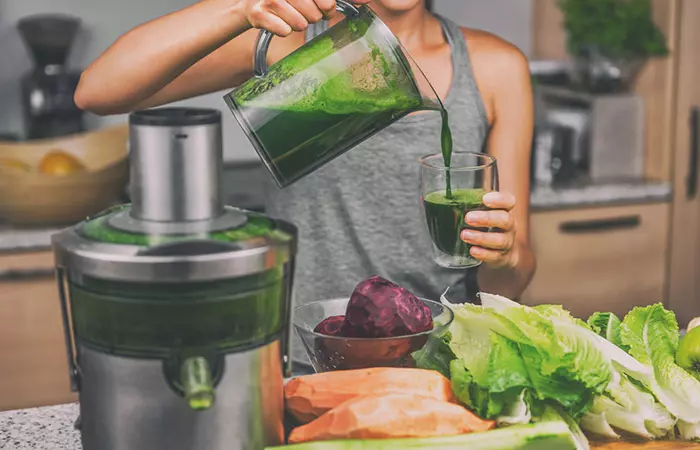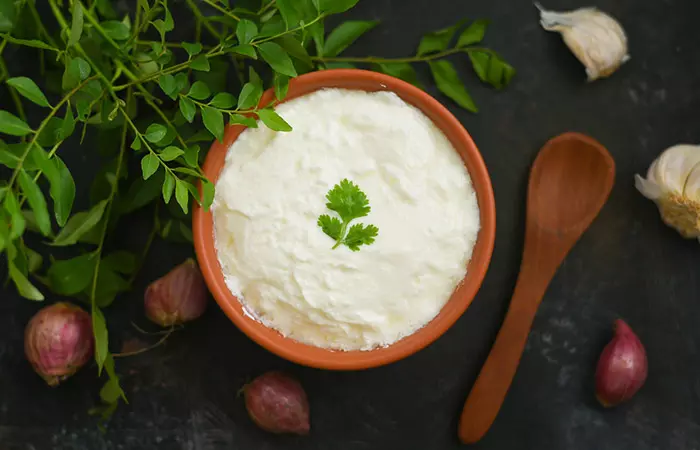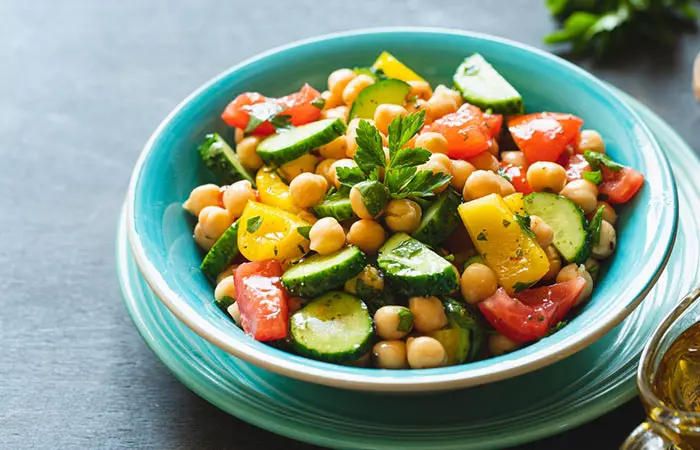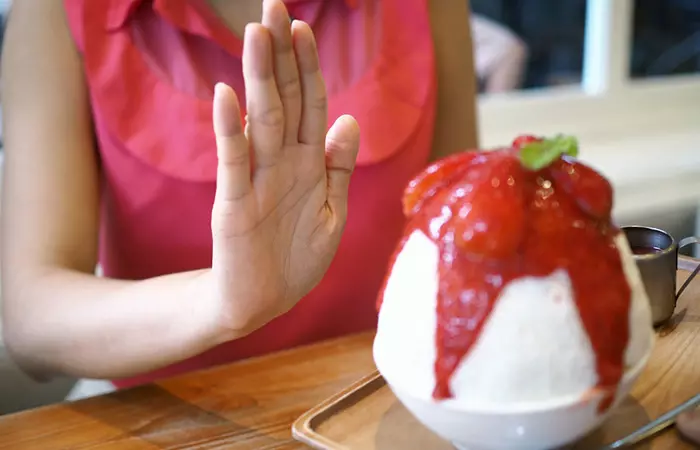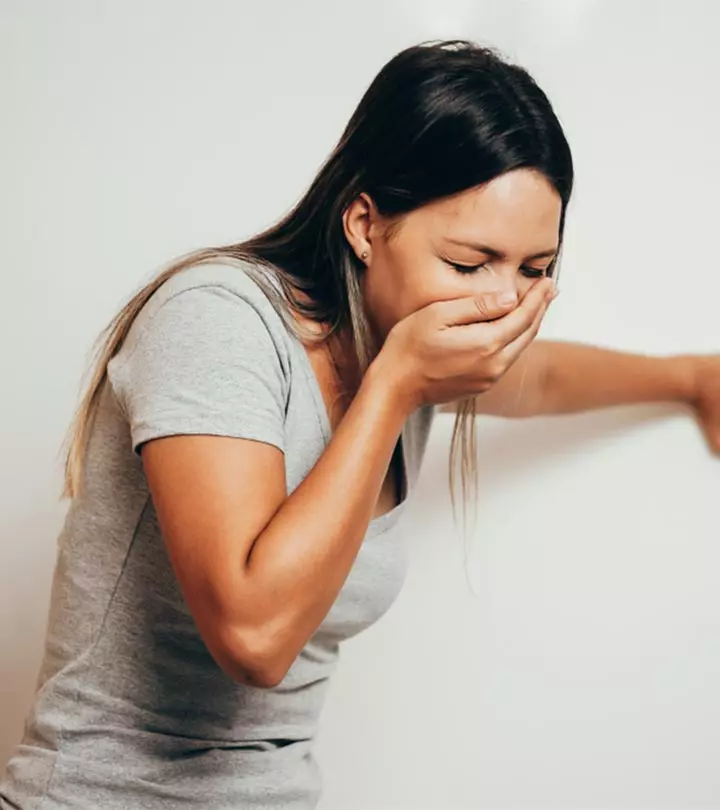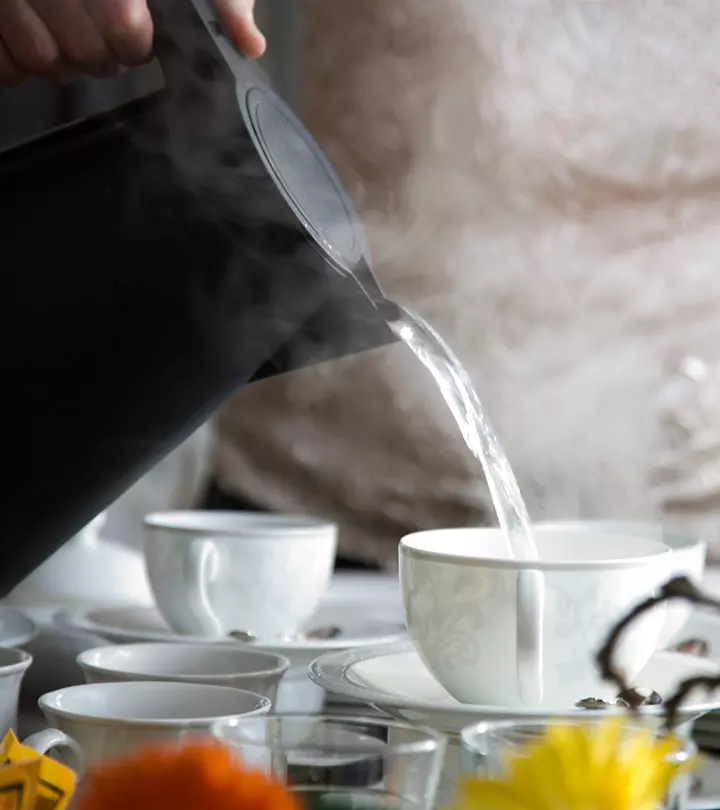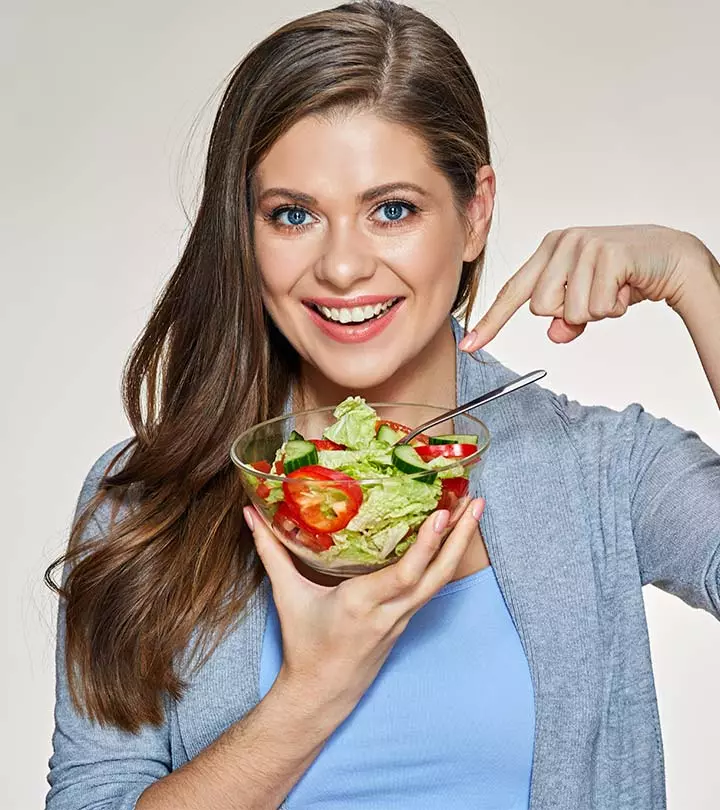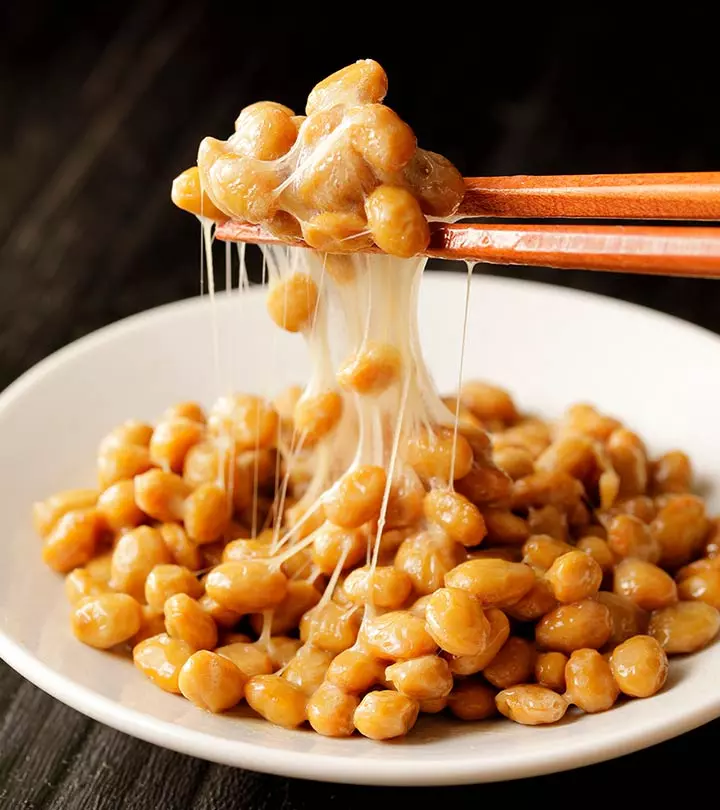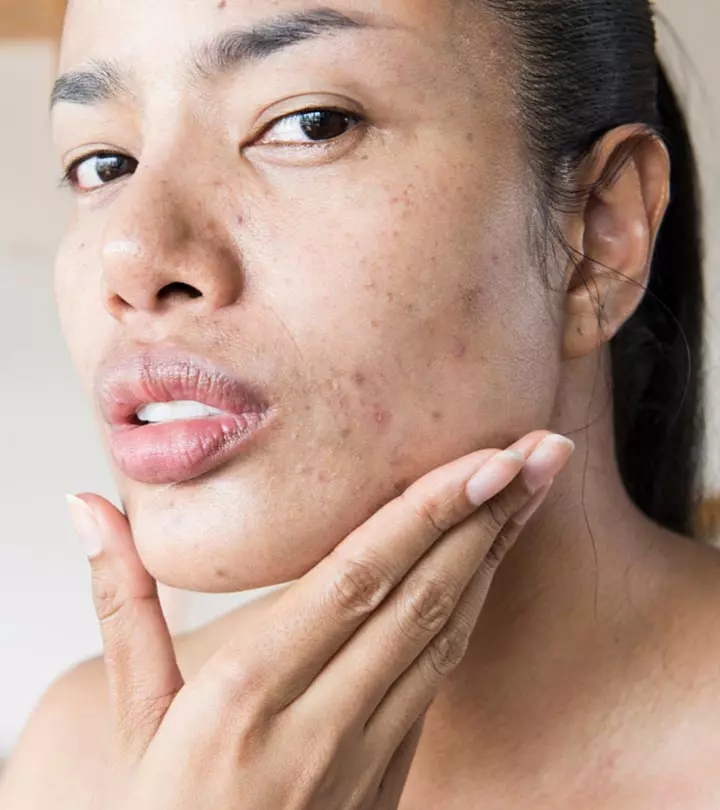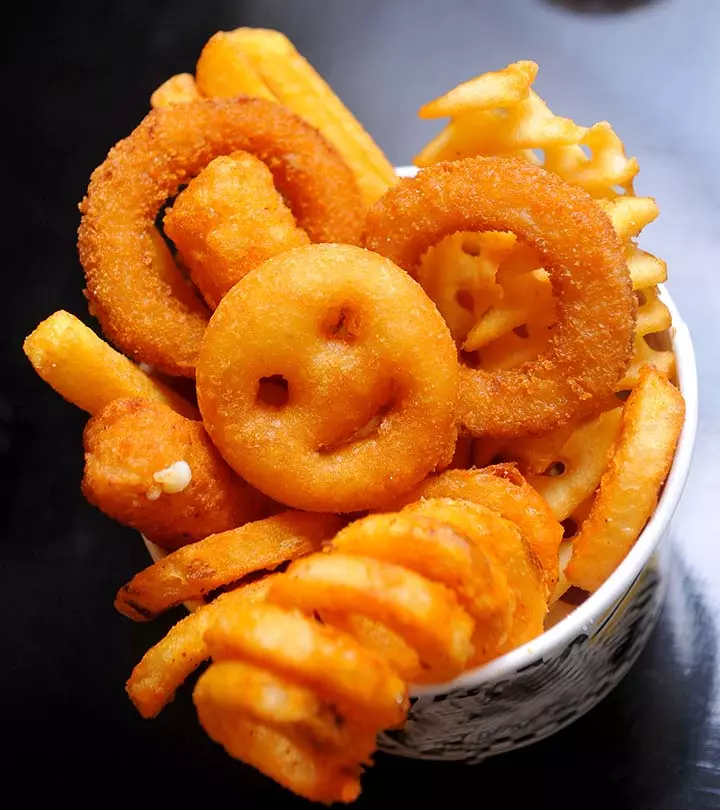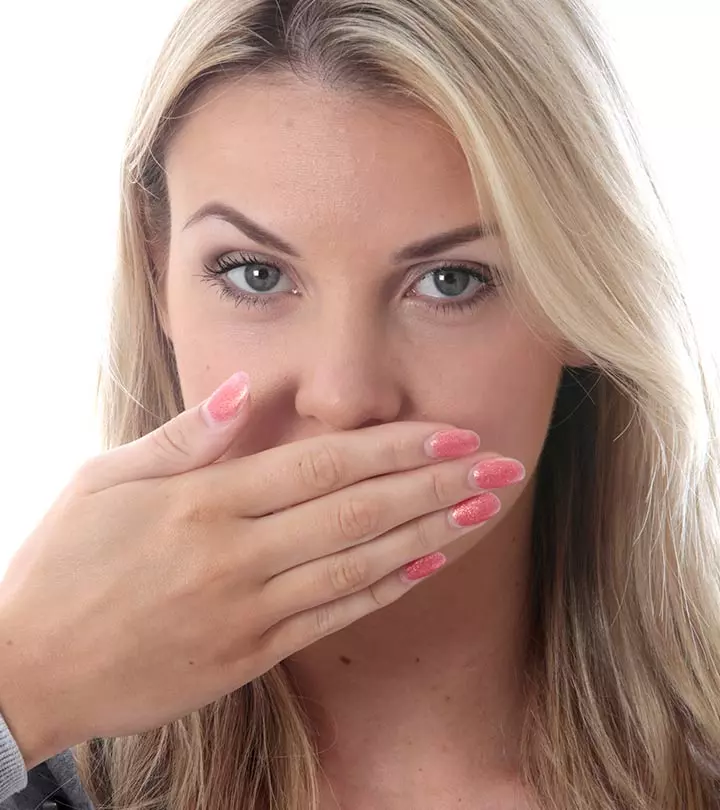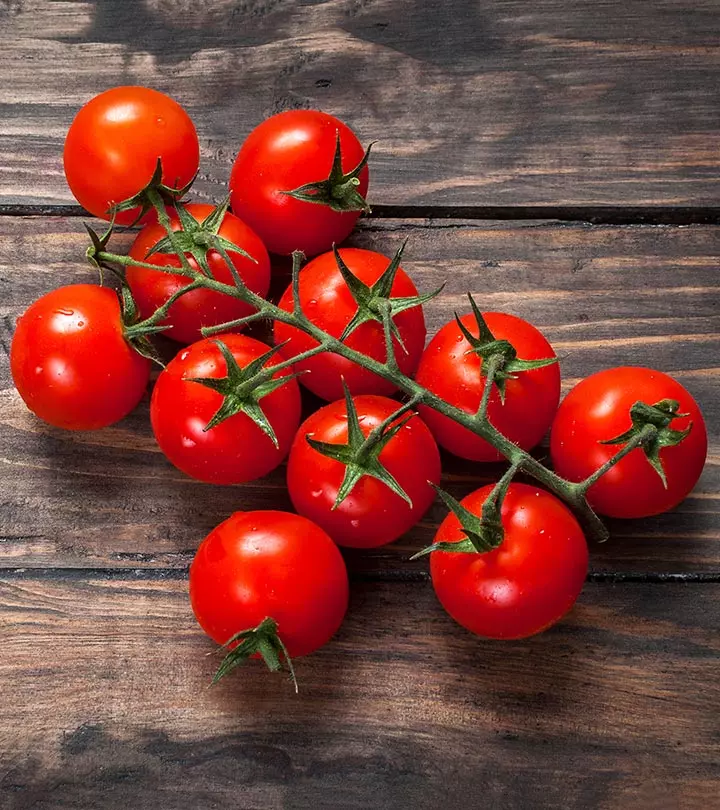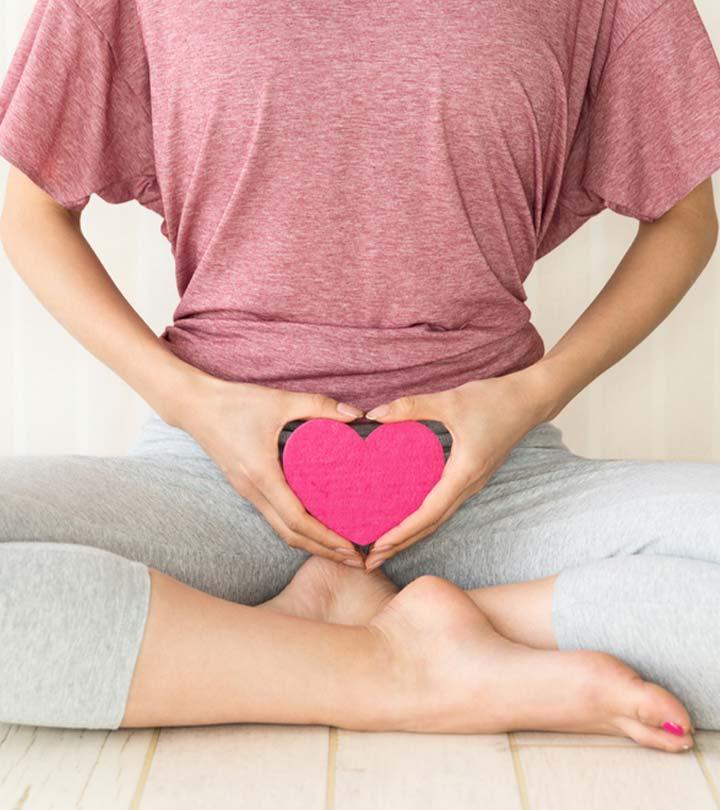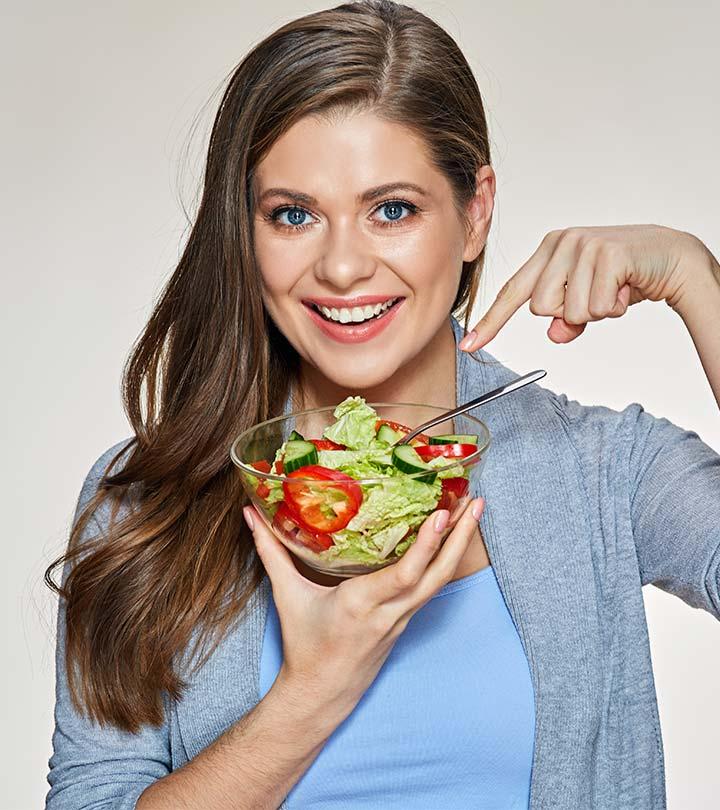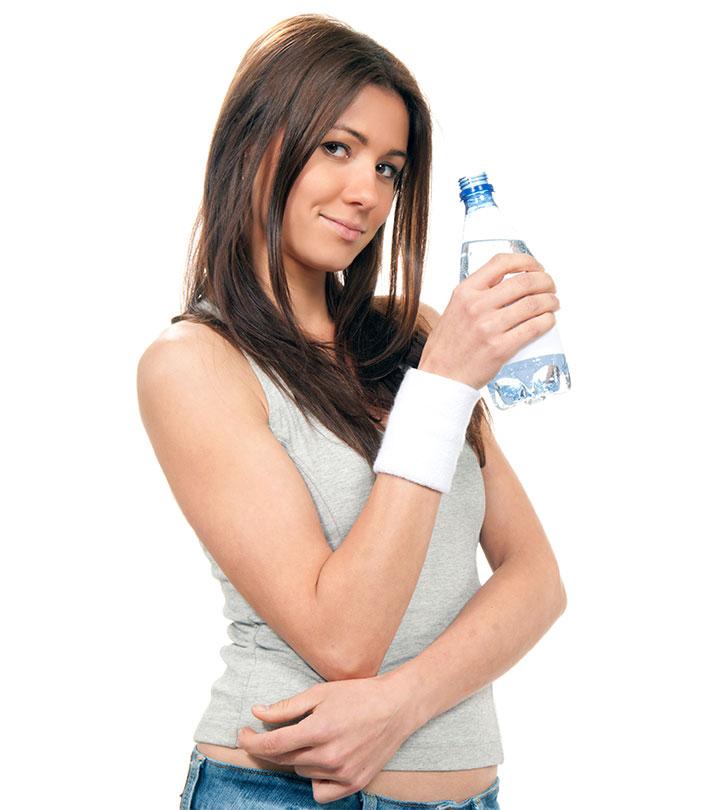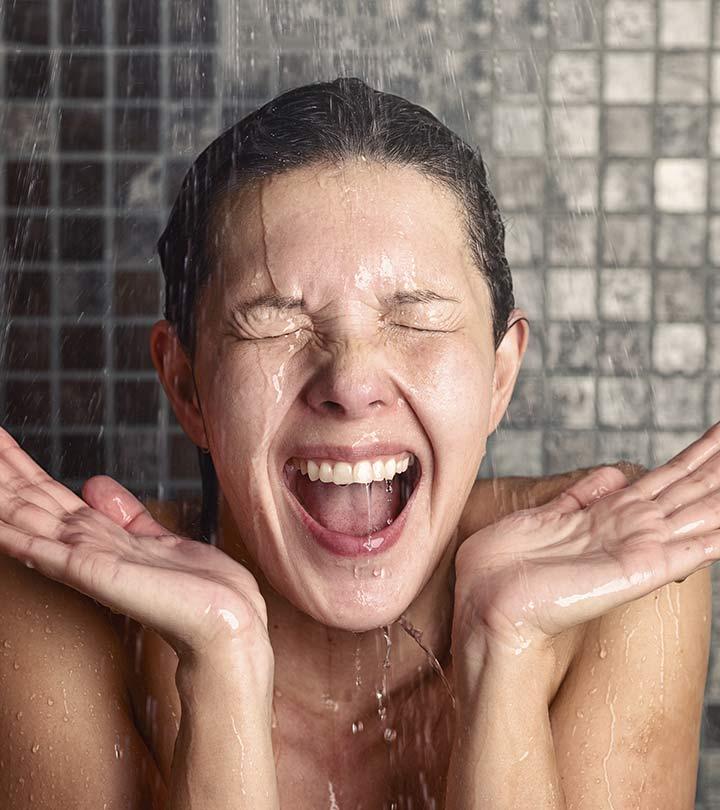What To Do After Eating A Lot Of Oily Food – 10 Ways To Recover From The Effects
Smart tips to ensure you don't always have to resist delicious albeit oily treats.
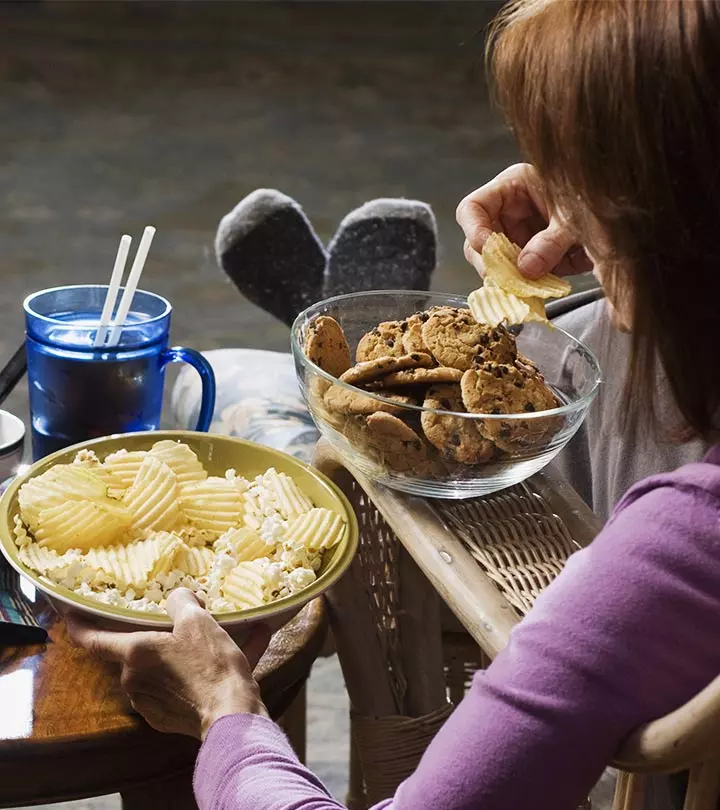
Image: ShutterStock
Sometimes, we all give in to food cravings and consume oily food. While it is ok to do so, we must also focus on what to do after eating oily food. Remember that oily foods are high in calories, trans fats, and saturated fats. These increase the risk of obesity and spike cholesterol levels, increase the risk of diabetes type 2 and heart disease, and elevate blood pressure (1). Thankfully, it’s not too late. You can take certain steps to nullify the effects of consuming too much oily food. Keep reading to know what to do after eating oily food and get back to your healthy lifestyle.
In This Article
What To Do After Eating Oily Food
1. Drink Lukewarm Water
Drinking lukewarm water after consuming oily food helps soothe and activate your digestive system. Water acts as a carrier for nutrients and waste products (2). Drinking hot water helps break down the nutrients into their digestible form. If you do not drink enough water, the small intestine will absorb water from food for digestion, leading to dehydration and constipation.
On the other hand, drinking ice water with meals is a huge stress on your digestion. Not only does it dilute your stomach acid, but it chills all the organs responsible for processing your food. Your body has to heat itself up again before recovering. So it is better to drink lukewarm water regularly, especially in the morning.
2. Have A Detox Drink
Detox drinks help flush out toxins that get accumulated in your system after consuming oily foods. Some researchers suggest that detoxification programs or detox drinks help release toxins and aid weight loss. However, these studies are not conclusive (3). A study on Korean women showed that drinking lemon water lemon juice or following a lemon detox diet reduced body fat and improved insulini A pancreatic hormone responsible for regulating blood sugar levels in the body. resistance (4). You can try out these DIY detox drink recipes to help you feel better after consuming oily foods. Drinking a detox juice and avoiding spicy foods after oily food consumption will surely help you in the long run. Avoid caffeine after oily food consumption for optimal digestion.
3. Take A Walk
Walking for 30 minutes after a heavy meal helps improve digestion. It promotes better stomach motility, aiding digestion, and may also help you lose weight (5), (6). Hence, go for a slow walk for 30 minutes after eating greasy food to relax your body. Do not indulge in heavy exercise or physical activity after oily food consumption.
 Did You Know?
Did You Know?4. Plan Your Next Meal
Planning your meals in advance helps you avoid consuming junk and oily foods on an impulse. Do not skip breakfast. Avoid eating greasy meals. Have a healthy and wholesome breakfast to keep you charged for the day. It is best to take small meals after oily food consumption. Include veggies and whole grains in your diet, keep yourself hydrated by drinking adequate water and juices, and have a light dinner. Opt for chewing slowly and thoroughly after oily food as well as everyday meal for better digestion.
5. Take Probiotics
Regular intake of probioticsi Live microorganisms that benefit the digestive system. helps balance digestive health and improves gut flora and immunity (7). You can have a cup of yogurt or curd. Add tempehi Indonesian food with a nutty flavor made from fermented soybeans. or nato to your diet plan to strengthen your gut after consuming oily food.
6. Consume More Fruits And Vegetables
Consuming fruits and vegetables after oily food consumption helps provide enough vitamins, minerals, and fiber to your body to carry out various processes (8). Eating oily foods that are devoid of fiber and essential micronutrients and high in saturated and trans fats may lead to constipation (9). Fiber-rich foods to eat after oily food includes having a bowl of fruits with nuts and seeds as a refreshing mid-morning snack. Start your meal with a bowl of salad and fresh vegetables to continue the supply of essential nutrients to your body.
A blogger shares that having fruits is important as they are a source of nutrients and balance the overall energy levels of the body. She adds, “Me personally I like to have a big breakfast of fruits and a big fruit smoothie or a big bowl of 1-2 types of fruits (i).”
 Quick Tip
Quick Tip7. Sleep Well
Sleeping helps boost your mood, gets rid of hangovers, and relaxes your mind, body, and soul. Hence, relax and sleep well and avoid emotional eating.
In a cross-sectional cohort study with 5792 participants, it was discovered that 85.43% (n = 4948) belonged to the group with no sleep disturbances, while 14.57% n = 844) belonged to the group with disturbances. Additionally, these participants also complained of specific digestive symptoms like abdominal pain, acid regurgitation, abdominal distension, and eructation.
8. Try Digestive Bitters
If you feel like your meal is just sitting in your stomach, try bitters to aid your digestion.
9. Use Digestive Enzymes
There is a great alternative to antacids after oily food consumption. It is is taking digestive enzymes supplements for oily food. This takes the stress of a big meal off your organs and helps your body recover. If you are vegan, worry not! Vegan options are available using only enzymes from fruits like pineapple and papaya.
10. Magnesium
If you experience constipation, consider supplementing with magnesium. This overlooked mineral not only helps keep things moving, but also helps your muscles recover and relieves aches and cramps.
What You Should Not Do After Eating Oily Food
1. Avoid Eating Cold Foods
Eating cold foods, such as ice cream, after consuming oily food has adverse effects on the liver, stomach, and intestines. Oily food is difficult to digest. Following it up with cold food makes digestion difficult, and you might experience bloating and indigestion. Hence, avoid consuming cold foods after heavy meals. Avoiding alcohol after oily food consumption can also be helpful.
2. Do Not Go To Bed Immediately After Eating
Avoid lying down after oily food consumption. Never go straight to bed after a heavy meal. Always give a gap of 2-3 hours between dinner and bedtime. Sleeping immediately after a meal makes food difficult to digest, causing bloating and enhancing fat deposition.
Limiting or avoiding your oily food intake is essential to reducing the risk of obesity and other health issues. Check out the next section for some simple tips to do so.
How To Avoid Oily Foods
Here are you can do to avoid eating oily foods:
- Opt for cooking methods like steaming, sauteing, or grilling.
- Bake your chips or snacks instead of deep frying them.
- Eat slowly and mindfully to promote fullness and avoid overeating.
- Opt for healthier fats, like peanut butter, to fulfill your cravings.
If you have specific dietary needs or goals, consult a healthcare professional or registered dietitian for personalized advice to ensure all your nutrient needs are met.
Infographic: Best Ways To Recover From An Oily Food Indulgence
While greasy foods stimulate your taste buds with just the right amount of flavor and zing, they may lead to a few gastrointestinal problems. Take a few steps to avoid facing unpleasant aftereffects of your oily food craving.
Check out the infographic below to learn about the quick, simple ways to recover from your greasy food indulgence. Illustration: StyleCraze Design Team
Now that you know what to do after eating oily food, you can take the required steps and precautions to help avoid its possible side effects. Go for low-fat meals after oily food instead of high-fat foods. Eat mindfully with portion control, go for probiotic supplements after oily food consumption, and follow the basic tips mentioned above to staying fit and healthy after eating oily food. Keeping a food diary after oily food consumption can also help you track your fat intake throughout. While you can satisfy your oily food and snacks craving once in a while, it is best to have a balanced, wholesome diet most other days.
Frequently Asked Questions
Can we drink milk after eating oily food?
Many people prefer to drink warm milk after eating oily food, which works. However, drinking water after oily food is the best option as it helps you digest heavy food and reduce the heavy feeling of oily items.
Does tea help with oily food?
Yes. you can drink digestive teas after oily food consumption. It may offer relief from the greasy feeling after a heavy meal. Go for herbal teas such as ginger tea, peppermint tea for better digestion.
Is it necessary to take medication after eating oily food?
No, it is not necessary to take medications after eating oily food. You can try the remedies discussed above. Take medicines only if these remedies show no results.
Why do you feel sick after oily food?
Oily food contains high amounts of fat, which slows down digestion and may cause bloating. Therefore, some people feel sick after consuming oily food.
Does oily food cause acne?
Oily food may cause acne because of its high-fat content. As per a study, factors like high GI/GL food, dairy products, fat food, and chocolates can promote acne (10).
Does oily food cause stress?
Oily foods with high-fat content can cause inflammation. Studies suggest that the gut microbiome also influences brain areas that are involved in both mood and appetite (11). Therefore, oily food may cause stress.
Does oily food affect the brain?
Oily foods like cookies, chips, and other packaged foods may contain trans fat. These have an adverse effect on the brain and nervous system as they can alter the neurons’ ability to communicate and reduce mental performance (11).
Does oily food cause hair fall?
Consuming oily foods, dairy products, and foods with high GI may cause overproduction of sebum on the scalp. It can block the hair follicles and may lead to hair fall and prevent hair growth (12).
Key Takeaways
- Drinking lukewarm water after consuming oily food helps the digestive system break down nutrients into digestible forms.
- Drinking detox drinks like lemon juice help remove toxins and promote weight loss.
- Eat two to three hours before going to bed to prevent bloating and digestion issues.
- Avoid eating cold foods like ice cream after consuming oil food to prevent digestive issues.
Personal Experience: Source
StyleCraze's articles are interwoven with authentic personal narratives that provide depth and resonance to our content. Below are the sources of the personal accounts referenced in this article.
i. THE POWER OF FRUIT – THE BEST FOOD FOR HUMANShttps://joshsrogers9.wordpress.com/tag/fruittarian/
References
Articles on StyleCraze are backed by verified information from peer-reviewed and academic research papers, reputed organizations, research institutions, and medical associations to ensure accuracy and relevance. Read our editorial policy to learn more.
- Fuhrman, Joel. “The Hidden Dangers of Fast and Processed Food.” American journal of lifestyle medicine 12,5 375-381.
https://www.ncbi.nlm.nih.gov/pmc/articles/PMC6146358/ - Jéquier, Eric, and Florence Constant. “Water as an essential nutrient: the physiological basis of hydration.” European journal of clinical nutrition2 (2010): 115-123.
https://idp.nature.com/authorize?response_type=cookie&client_id=grover&redirect_uri=https%3A%2F%2Fwww.nature.com%2Farticles%2Fejcn2009111 - Klein, A. V., and H. Kiat. “Detox diets for toxin elimination and weight management: a critical review of the evidence.” Journal of human nutrition and dietetics6 (2015): 675-686.
https://onlinelibrary.wiley.com/doi/full/10.1111/jhn.12286 - Kim, Mi Joung et al. “Lemon detox diet reduced body fat, insulin resistance, and serum hs-CRP level without hematological changes in overweight Korean women.” Nutrition research (New York, N.Y.) 35,5 (2015): 409-20.
https://pubmed.ncbi.nlm.nih.gov/25912765/ - Kim, Yeon Soo et al. “Aerobic exercise improves gastrointestinal motility in psychiatric inpatients.” World journal of gastroenterology 20,30 (2014): 10577-84.
https://www.ncbi.nlm.nih.gov/pmc/articles/PMC4130869/ - Hijikata, Yasuyo, and Seika Yamada. “Walking just after a meal seems to be more effective for weight loss than waiting for one hour to walk after a meal.” International journal of general medicine 4 (2011): 447-50.
https://www.ncbi.nlm.nih.gov/pmc/articles/PMC3119587/ - Brown, Amy C, and Ana Valiere. “Probiotics and medical nutrition therapy.” Nutrition in clinical care : an official publication of Tufts University 7,2 (2004): 56-68.
https://pubmed.ncbi.nlm.nih.gov/15481739/ - Slavin, Joanne L, and Beate Lloyd. “Health benefits of fruits and vegetables.” Advances in nutrition (Bethesda, Md.) 3,4 506-16.
https://www.ncbi.nlm.nih.gov/pmc/articles/PMC3649719/ - Taba Taba Vakili, S et al. “Association of high dietary saturated fat intake and uncontrolled diabetes with constipation: evidence from the National Health and Nutrition Examination Survey.” Neurogastroenterology and motility : the official journal of the European Gastrointestinal Motility Society 27,10 (2015): 1389-97.
https://www.ncbi.nlm.nih.gov/pmc/articles/PMC4584183/ - Dall’Oglio F, Nasca MR, Fiorentini F, Micali G.” Diet And Acne: Review Of The Evidence From 2009 To 2020.” Int J Dermatol. 2021 Jun;60(6):672-685.
https://pubmed.ncbi.nlm.nih.gov/33462816/ - Bremner JD, Moazzami K, Wittbrodt MT, Nye JA, Lima BB, Gillespie CF, Rapaport MH, Pearce BD, Shah AJ, Vaccarino V. Diet, “Stress and Mental Health”. Nutrients. 2020 Aug 13;12(8):2428.
https://pubmed.ncbi.nlm.nih.gov/32823562/ - Ginter E, Simko V. “New Data On Harmful Effects Of Trans-Fatty Acids”. Bratisl Lek Listy. 2016;117(5):251-3.
https://pubmed.ncbi.nlm.nih.gov/27215959/
Read full bio of Olesya Wilson
- Olesya Wilson is a Certified Nutritionist, Functional Diagnostic Practitioner, and Psychosomatics and Energy Healer. She has a unique approach to solve her client's health issues, which involves the integration of the latest discoveries in biological science, cutting-edge research, ancient herbal medicine, and revolutionary psychosomatic and energy healing practices.
 Olesya Wilson is a Certified Nutritionist, Functional Diagnostic Practitioner, and Psychosomatics and Energy Healer. She has a unique approach to solve her client's health issues, which involves the integration of the latest discoveries in biological science, cutting-edge research, ancient herbal medicine, and revolutionary psychosomatic and energy healing practices.
Olesya Wilson is a Certified Nutritionist, Functional Diagnostic Practitioner, and Psychosomatics and Energy Healer. She has a unique approach to solve her client's health issues, which involves the integration of the latest discoveries in biological science, cutting-edge research, ancient herbal medicine, and revolutionary psychosomatic and energy healing practices.
Read full bio of Arshiya Syeda
Read full bio of Sindhu Koganti





